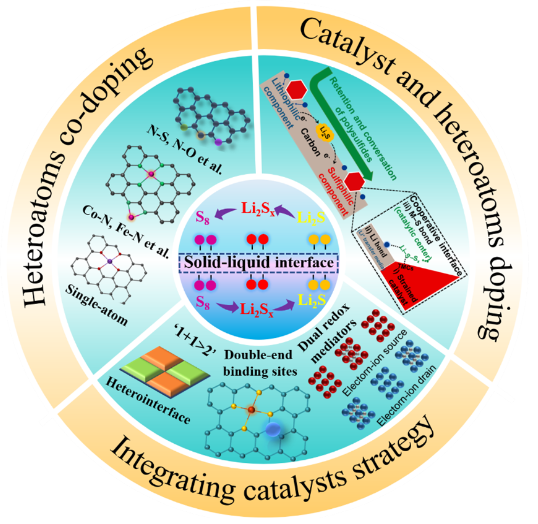Recently, Research Group Led by Prof. Wang Deli published their research work entitled " Engineering the cooperative catalysis in Li–S batteries " on Advanced Energy Materials.
Lithium-sulfur (Li-S) batteries are regarded to be one of the most promising next-generation batteries owing to the merits of high theoretical capacity and low cost. However, the aprotic S electrochemistry is hampered by the shuttling effect and sluggish conversion of soluble lithium polysulfides (LiPSs). Various electrocatalysts have been designed to optimize the conversion kinetics of the LiPSs. Heteroatom doping or polar catalyst incorporation plays an important role to remedy these shortcomings. Here, the cooperative catalytic effects engendered by heteroatom codoping engineering, catalyst/heteroatom doping composite strategy, and integrating polar-metal-based material design are summarized. First, the design principles of the cooperative catalytic effect on the conductive interface are described in detail. Moreover, a systematic investigation of electrocatalytic kinetics characterization techniques that establish a bridge between the cooperative solid–liquid interface and the macroscopic electrochemical performance is highlighted, providing more scientific guidance for the catalyst design. In conclusion, stemming from the current achievements, future directions targeting the high-energy-density Li-S batteries for commercialization are proposed.

Link to this paper: https://www.researchgate.net/publication/372392650_Engineering_Cooperative_Catalysis_in_Li-S_Batteries